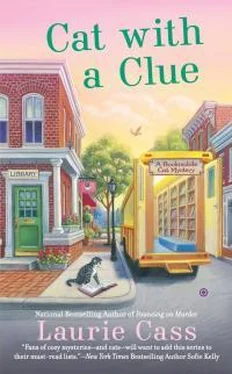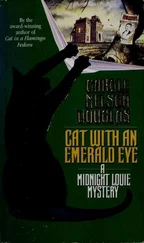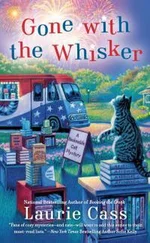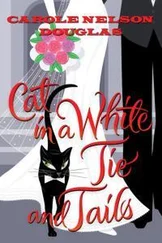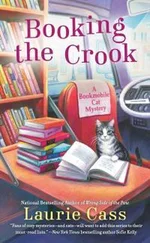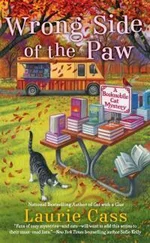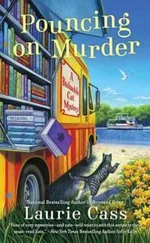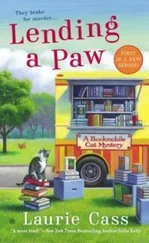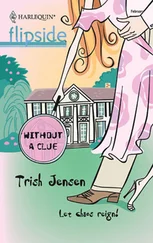He pronounced the last word as a curse, and I had a hard time keeping my grin to myself; Mr. Zonne and I had a difference of opinion on the usefulness of the Internet, and the twain would never meet.
“Anything else?” I asked.
“Nothing that would be useful.”
Julia opened her arms wide. “Give us your all, kind sir. Give us the details, tiny and large, obscure and not, because one never knows what is important until the right moment.”
I looked at her. “Is that a quote?”
“No idea,” she said. “There are bits of so many plays in my head that I haven’t had an original thought since 1987.”
“The year Dave DeKeyser left Chilson for good,” Mr. Zonne said. “And the year van Gogh’s Sunflowers sold for almost forty million dollars.”
I smiled. “Not sure that’s pertinent, but, like Julia said, you never know. Do you remember anything else?”
“The DeKeyser women love to garden,” he said. “From stem to stern and top to bottom, the whole kit and caboodle could spend hours talking about roses, manure, trilliums, invasive species, Gertrude Jekyll, and how to force lilacs to bloom in January.”
“You can do that?” I asked, surprised.
“None of them seem to have any problem,” he said, “but I never had any luck. Forsythia, yes, but not a lilac, not once.”
The three of us started a discussion of Mackinac Island’s annual Lilac Festival, which had ended the previous weekend, and my questions about the DeKeysers faded away from the conversation.
But not from my thoughts.
* * *
Late that night I was sitting at the dining table in my pajamas with a copy of C. J. Sansom’s Lamentation in front of me. Eddie was disgruntled because we weren’t in bed, where we should have been, but there was a good reason, which I had to explain to him every few minutes.
“Stop that,” I said, pushing him off the book for the ten-thousandth time. “This book is compelling and wonderfully written, but it’s also”—I flipped to the back page and read the number at the bottom—“six hundred and forty-two pages long. That’s more pages than you have bits of kibble in your bowl.”
Eddie looked down at the book, then up at me.
“No,” I said firmly. “You don’t need six hundred and forty-two pieces of kibble in your bowl. For one thing, the bowl isn’t big enough. The four hundred and fifty pieces in there are its maximum capacity.” I’d made up the number, but Eddie wouldn’t know the difference.
“Mrr,” he said.
“Exactly,” I told him. “Any book longer than six hundred pages is too big to take to bed. I might fall asleep and drop it on your furry little head, and we can’t have that, now, can we?”
My cat rubbed his face up against the book, leaving a trail of Eddie hair across the rough-cut pages. “Nice,” I murmured, and pulled him onto my lap. One more chapter and then I’d get to bed.
Two chapters and three pages later, my cell phone rang.
I blinked at it, then reached out and flipped it over. Pam Fazio? Why on earth would she be calling at— I glanced at the phone’s time and was startled to see that it was past midnight. Well past.
Huh.
I thumbed on the phone. “Pam? What’s up?”
“Oh, Minnie,” she said raggedly. “I’m so sorry to call you at this hour.”
“No problem,” I said. “Eddie and I were up reading.” I patted the top of my furry companion’s head, making it bob up and down. “What’s the matter?” Because something clearly was. Pam, who was extremely capable and very intelligent, was also one of the most self-reliant people I’d ever met, but her voice was tight and worried.
“It’s a lot to ask,” she said, “but could you do me a favor? Now, I mean?”
I almost made a joke about being willing to do anything for her, as long as it didn’t involve quadratic equations or juggling, and especially not both. But Pam had moved to Chilson not all that long ago, and she was still forming friendships and connections. I knew how hard it could be to insert yourself into the life of a small town, so I said, “Absolutely not a problem. What do you need?”
“A ride.”
I blinked. “To somewhere or from somewhere?”
“To home,” she said. “From . . . from the hospital.” And then the brave and capable Pam Fazio did something that shocked me.
She started crying.
Chapter 7
The next day, after the police had come and gone, I stood in the back doorway of Pam’s antiques store.
It was a horrific mess.
Linens, shoes, clothes, and books lay scattered everywhere. Slowly, I walked through the store, bits of broken glass and porcelain crunching under my feet, bits that had, until yesterday, been whimsical teapots, adorable mugs, stunning vases, gorgeous candlesticks, and hand mirrors that had probably survived two world wars.
Standing in the middle of the room, I turned in a slow circle. Even the framed prints and photos on the walls had been tossed onto the floor, their glass shattered and frames broken. The noise filled me, and I wanted to plug my ears against a memory that was only in my imagination.
I crouched and picked up a metal lunch box, one from the female-themed collection Pam had been growing the past few months. Supergirl was still flying, but one of her arms was a little dinged.
Just like Pam.
My friend had returned to her store late the previous night to make sure she’d turned off the coffeepot. “I always double-check before I leave,” Pam had said as I drove her home from the hospital. “But when I was getting ready for bed, I just couldn’t remember. I had to go back.”
I’d nodded. Though the library’s coffeepot had a timer attached, on my way out I always made sure there was no heat. Not that I distrusted electronics; I just trusted my own senses more.
“So I walked back to the store,” Pam had gone on. This made sense, since her small house was only a few blocks from downtown. “It was a beautiful night. I was looking at the stars, thinking how lucky I was to live in a place where you could actually see the Milky Way without driving for miles to get away from the city lights. I cut down the alley, like I always do, and went to the back door. “But . . .” She gave a pained noise. “But the door was partly open. There was no possible way I’d left it that way. Something was seriously wrong.”
She’d looked over at me. “I know I should have left right then and called the police—I know they do hourly rounds downtown all summer—but I had to look inside. I mean, it’s my store.”
Her last words were emphatic and heartfelt, and I knew exactly how she’d felt. If I hadn’t had Eddie with me the morning I’d found the bookmobile garage broken open, I might have done the same thing. Sometimes the right thing to do takes second place to what you have to do.
Pam had continued on with her tale. That she’d pushed the door all the way open. That she’d seen a large shape moving around inside the shadows. That she’d called out in anger. That the shape had moved toward her, shoving her aside with so much force that she’d fallen hard against a counter. The shape had run into the poorly lit alley and vanished.
Struggling to her feet, Pam had put her hands on the floor to push herself up and fallen back down from pain. She’d extracted her cell phone from her purse and called 911. The city police had arrived quickly, the ambulance right behind them. In the emergency room, Pam was told she had a broken arm and that it would take eight weeks to heal.
“Eight weeks,” she’d said, as I helped her out of my car and into her house. “I have a store to run. A store to clean up! I can’t . . . I don’t . . .”
Читать дальше
